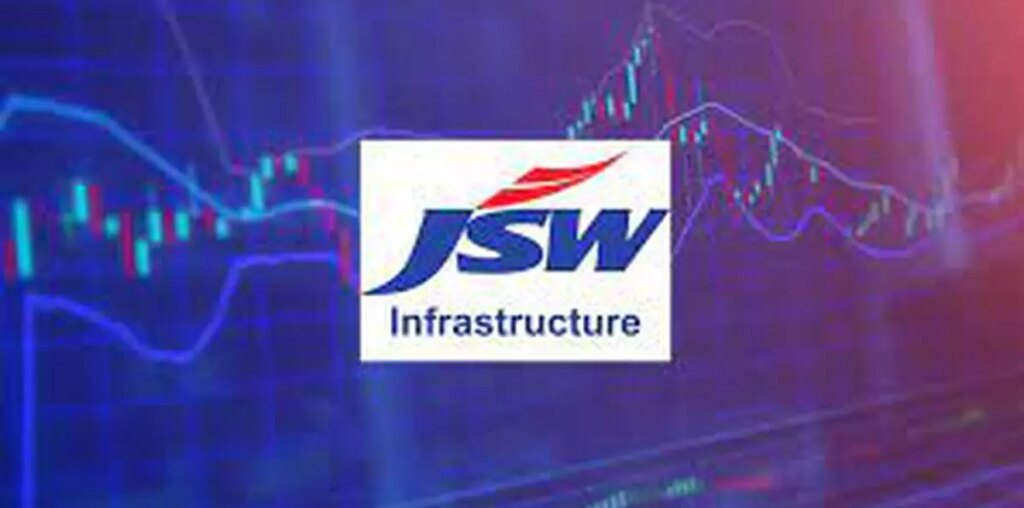Following the announcement of Q2 results after market hours on October 28, the shares of JSW Infrastructure (JSW Infra) have risen 10 per cent till Wednesday, October 30. A recently listed player, JSW Infra, is up 166 per cent from its IPO price. What’s driving the stock?
Riding on growth in cargo handling
In the quarter ended September 2024, JSW Infrastructure’s revenue, EBITDA and PAT grew 21.5 per cent, 21.6 per cent and 46.1 per cent respectively year on year, on a consolidated basis, to ₹1,088 crore, ₹607 crore and ₹374 crore respectively. However. EBITDA and PAT had a boost to the tune of around ₹155 crore from foreign exchange gains. Adjusting for this, EBITDA and PAT de- grew around 9 per cent and 13 per cent Y-o-Y, owing to 30 per cent increase in depreciation expenses (consequence of increased capex).
The revenue growth was primarily driven by an uptick in the cargo handled from 23.7 million tonnes (MT) in Q2 FY24 to 27.5 MT in Q2 FY25. Cargo handled on the basis of customer mix for H1 FY25 stood at 52:48 in the favour of JSW Group and third-party customers respectively, against 60:40 for FY24. This segment contributes to around 75 per cent of the company’s revenue and is hence critical. While the company has a strong anchor customer in the form of JSW Group, the third-party cargo handled increased at a robust 48 per cent during the same timeline, boding well for the long haul.
Recently acquired assets – PNP Port, Maharashtra and Liquid Terminal in UAE – contributed to around 66 per cent of the improvement in volume of cargo handled. Improvement in utilization of existing ports – coal terminals of Mangalore, Paradip and Ennore – also aided the growth.
Capex updates
During the quarter, the company received a Letter Of Intent (LOI) for Murbe Port – a greenfield port in Maharashtra. This port (estimated capacity of 33 MT) will be an all-weather, multi-cargo port with strategic connectivity to key road and rail corridors like National Highway 8 and the Delhi-Mumbai Trunk Railroad. Brownfield capacity expansion of 15 MT at Jaigarh Port and 21 MT at Dharamtar Port was also approved during the quarter.
Navkar Corporation, an acquisition which was approved and initiated during Q1 FY25, was completed during Q2 and integration is underway. Navkar primarily operates in the logistics sector, specialising in container freight stations and inland container depots, which serve as hubs for handling and temporarily storing cargo for exim. This acquisition will help JSW Infra move beyond port operations into inland logistics, enabling end-to-end cargo handling along with last mile connectivity, expanding its portfolio of offerings and offering potential synergies not just with JSW Infra but with the entire JSW Group.
Outlook
JSW Infra is the second largest commercial port operator in India, in terms of cargo handling capacity, with an existing capacity of 170 MT. Adani Ports leads the sector with a capacity of 663 MT. With approved capex projects to the tune of 108 MT and projects under review adding upto 63 MT, JSW Infra has laid out a plan to reach a total capacity of 400 MT by FY30.
While Q2 is normally the seasonally weaker quarter, the performance of JSW Infra is a positive surprise and betters Adani Ports’ cargo growth number of 10 per cent. While cargo growth surprised positively in Q2 vis-a-vis expectations, the full year’s guidance has been slashed. Cargo growth, which was guided in the range of 10-12 per cent for FY25, at the beginning of the FY, has been revised to the lower end of the guidance – 10 per cent. The management noted that cargo growth for the full year would be impacted on account of brownfield capacity expansion activities in existing ports.
The company also boasts of a solid balance sheet and net cash of approximately ₹87 crore, which makes it well-positioned to capitalise on attractive opportunities for inorganic growth. Comparing it with its peers, Adani Ports has a net debt to TTM EBITDA of 2 times, while Gujarat Pipavav is debt-free.
The shares of JSW Infra, are trading at a one-year forward PE of 48.1 times, which is expensive compared to its close peers, Adani Ports which is trading at 28.3 times and Gujarat Pipavav Port trading at 19.7 times. In terms of EV/ Revenue too, JSW Infra trades at a premium of 16.6 times to 12.5 times of Adani Ports and 8.3 times of Gujarat Pipavav Port.

